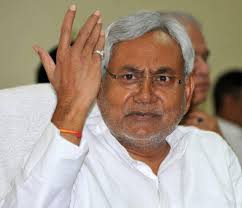Bihar, Nov 20: Bihar Chief Minister Nitish Kumar has turned his oath-taking ceremony into a national convention of anti-BJP forces.
 Though the gathering is not homogenous and unlikely to become a precursor of an anti-Modi grand alliance at national level, it will certainly open up possibilities of new alliances in states and some understanding at the national level.
Though the gathering is not homogenous and unlikely to become a precursor of an anti-Modi grand alliance at national level, it will certainly open up possibilities of new alliances in states and some understanding at the national level.
“This would be a grand event. Ten chief ministers, national leaders like Rahul Gandhi, H D Deve Gowda, Sharad Pawar and Prakash Ambedkar, all are participating. “All the Congress-ruled state chief ministers will attend the event. Delhi Chief Minister Arvind Kejriwal, UP Chief Minister Akhilesh Yadav and West Bengal Chief Minister Mamata Banerjee are also participating,” JD(U) General Secretary Arun Shrivastav told Deccan Herald.
The guest list of Nitish shows his first priority — that the event should embarrass BJP and Prime Minister Narendra Modi. He has invited all those who are opposed to them. Two Shiv Sena ministers, Ramdas Kadam and Susbhash Desai are prominent names as far as this angle is concerned. Apart from causing embarrassment to the BJP, Nitish and Lalu carefully decided the guests list keeping in view their social and regional importance.
If the list includes regional leaders like JD(S) leader Deve Gowda, DMK’s MK Stalin, Trinamool Congress leader Mamata Banerjee and Ajit Jogi (Chhattisgarh) and Babulal Marandi (Jharkhand), it also balances social equations. The Mahagathbandhan has invited AIUDF leader of Asam Badruddin Ajmal and Dalit leader of Maharashtra Prakash Ambedkar.
Two top Left leaders Sitaram Yechury and D Raja are attending the meeting. This shows that national level anti-BJP alliances, which Lalu and Nitish are contemplating, should have broad political base.





Comments
Add new comment